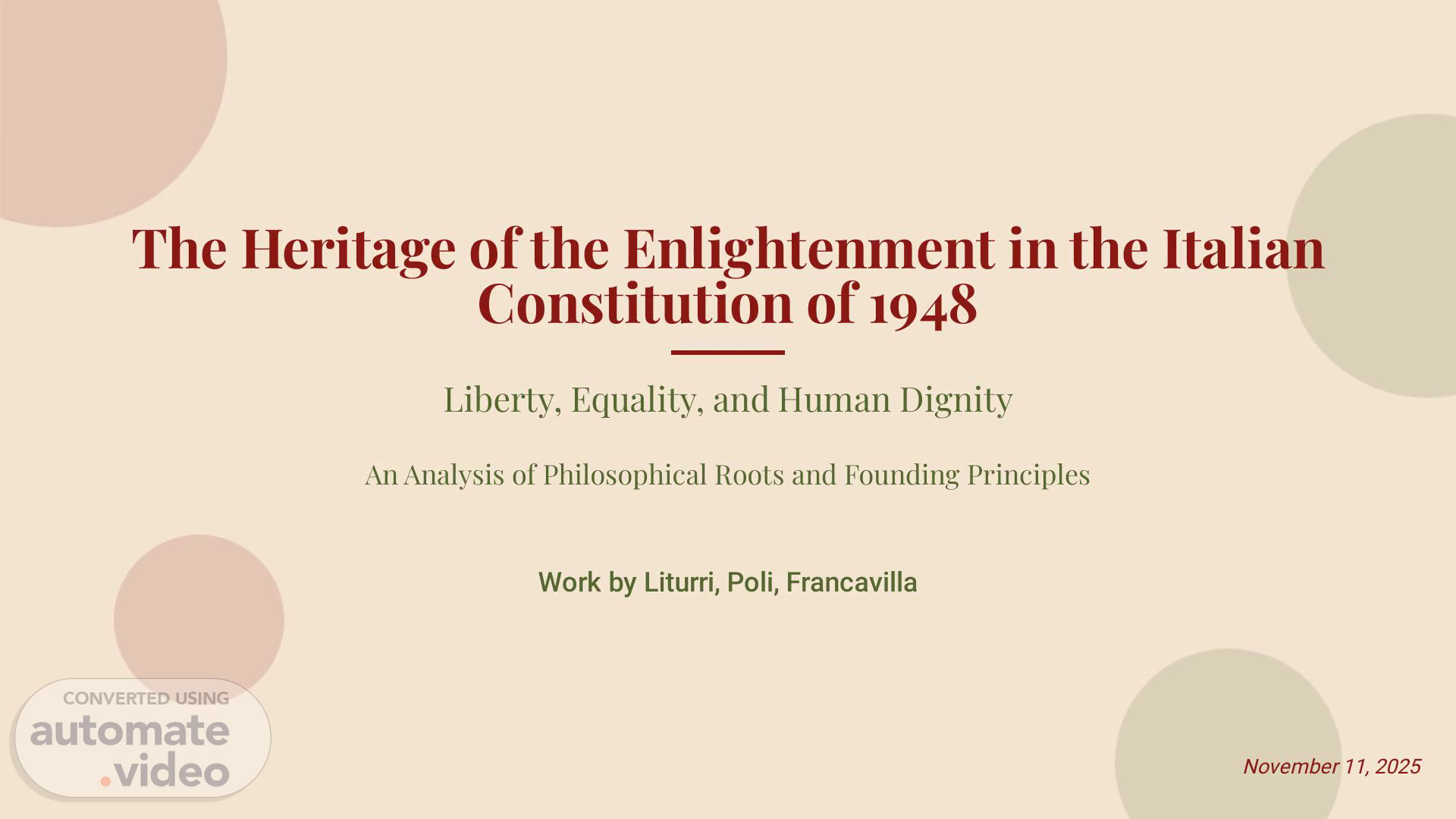Scene 1 (0s)
[Audio] The Italian Constitution of 1948 is based on the philosophical roots of the Enlightenment period. The foundational document incorporates key ideas such as liberty, equality, and human dignity into its core principles. The work of thinkers like Voltaire, Rousseau, and Montesquieu has had a significant impact on the development of modern democracy. Their emphasis on reason, individual rights, and the separation of powers can be seen in the Constitution's provisions. The concept of human dignity is deeply rooted in Enlightenment thought, with philosophers like Immanuel Kant and Jean-Jacques Rousseau contributing to this idea. The Constitution's focus on protecting individual liberties and promoting social justice aligns with the values of the Enlightenment. By examining the philosophical foundations of the Constitution, one can gain a deeper understanding of the principles that underpin modern democracy..
Scene 2 (1m 1s)
[Audio] The Enlightenment Movement was a revolutionary period in European history that emphasized the use of reason to improve society. It was characterized by a focus on knowledge, education, and critical thinking. The movement sought to liberate individuals from ignorance and promote social progress through learning and intellectual development. Critical thinking and empiricism were key components of this intellectual movement. Tolerance and individual freedom were also central to the Enlightenment, with a strong emphasis on defending rights and personal autonomy. The movement rejected traditional authority and established norms, instead promoting a more rational and informed approach to understanding the world..
Scene 3 (1m 46s)
[Audio] The philosophers Voltaire, Rousseau, and Montesquieu played significant roles in shaping the Enlightenment movement. The core of their philosophy was centered around the concept of social contract theory. According to this theory, individuals voluntarily agree to form a government in order to protect their rights and freedoms. The social contract theory emphasizes the importance of protecting individual liberties, such as freedom of speech and religious tolerance. The philosophers also advocated for the separation of powers among the legislative, executive, and judicial branches of government. This separation ensures that no single branch has too much power, thereby preventing abuse of authority. Furthermore, they believed in popular sovereignty, where the power resides with the people, rather than a monarch or elite group. The philosophers also emphasized the need for the separation of church and state, preventing any one institution from dominating the others. Their thoughts on prevention of tyranny, criticism of intolerance, and protection of liberty were crucial in shaping modern democratic systems. The concept of general will refers to the collective decision-making process of the people, serving as the foundation for constitutional governments. The philosophers' ideas have had a lasting impact on the development of constitutional governments and continue to influence contemporary political thought. The phrase "general will" highlights the importance of considering the needs and interests of all citizens when making decisions. The philosophers' emphasis on the authority derived from the consent of the governed has ensured that power is exercised only with the permission of the people. The two famous quotes by Voltaire and Montesquieu serve as reminders of the importance of balancing authority and accountability. Voltaire's statement "I disapprove of what you say, but I will defend to the death your right to say it" exemplifies his commitment to defending freedom of expression, even when disagreeing with someone's viewpoint. Montesquieu's quote "This is the end of the presentation" serves as a reminder of the importance of respecting the boundaries of public discourse..
